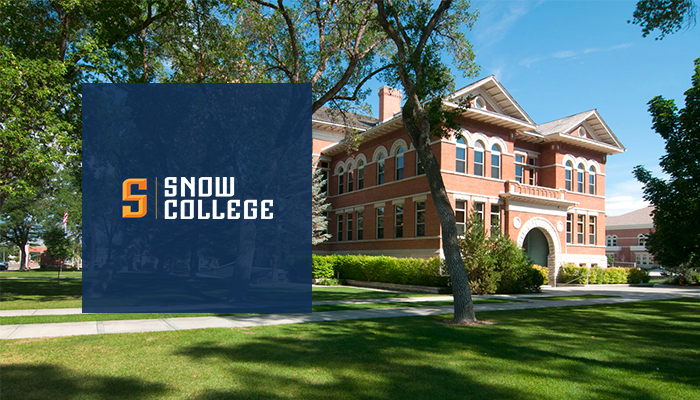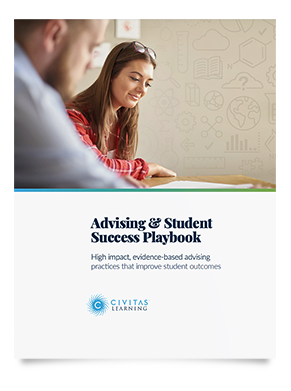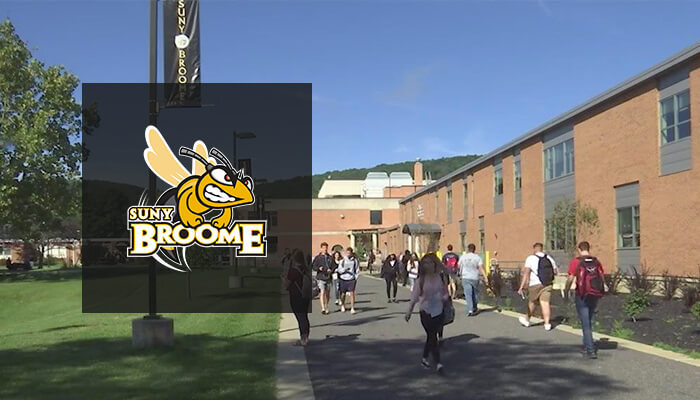
How Snow College Lifted Retention by 12% with Institution-Specific Insights
Share this Post
With a student population of over 5,000, a six-county service area, and the main campus in Ephraim, Utah, Snow College seeks to ensure its student reach their full potential.
To improve how it serves its students, Snow College partnered with Civitas Learning to uncover institution-specific factors influencing student success. The Civitas Learning platform’s actionable insights allowed leaders to tailor engagement efforts, contributing to a 12% increase in retention from Fall 2022 to Fall 2023.
Access to actionable insights within the Civitas Learning platform empowers the Snow team to take precise action to improve student outcomes in two important ways:
- Offer Group Advising to Create Capacity for Personalized Support
- Use Powerful Predictors to Support Vulnerable Students Proactively
Group Advising Creates Capacity for Personalized Support
When a campus culture prioritizes personalized experiences, advisors and student support staff may feel pressured to provide one-on-one support to every student. However, relying solely on a one-size-fits-all approach to advising may result in some students not receiving the help they need.
Using Civitas Learning’s initiative analysis capabilities, advising leaders could determine if all students benefit equally from one-on-one advising experiences. The answer was clear: while all students benefit from personalized advising services, lower-performing students saw a 20% boost in persistence due to an individual advising meeting, compared to a 3% increase among high-performing students.
With advising caseloads ranging from 500 to 600 students per full-time advisor, determining the impact of one-on-one advising support across different segments of the student body helps the Snow advising team refine their practices and maximize their impact on student success.
According to Landon Peterson, Director of Academic Advising at Snow, “This insight has allowed us to provide more equitable services to students because we now know who benefits most from personalized support.”
Knowing that students in the lower quartiles of predicted success benefit much more from personalized advising support, Snow advisors are experimenting with group advising to serve high-performing students. This creates the capacity for more personalized outreach and support for students in the lower quartiles of success.
The initiative analysis data at Snow clearly shows that some students benefit much more from personalized support than others. This insight facilitates a deeper understanding of how to best support all students and creates an opportunity to achieve more equitable outcomes for low-performing students.
Powerful Predictors Reveal Opportunities to Support Vulnerable Students Proactively
Using the Civitas Learning Platform’s powerful predictive capabilities, leaders noticed that students who enrolled just before the semester had a lower chance of persisting than those who registered earlier. As a community college with open enrollment, there will always be students at Snow who wait to enroll until just before the term begins. However, understanding that this factor affects a student’s potential for success allows the institution to actively support this particular group of students.
With this knowledge, the student success planning committee used the Civitas Learning platform to quickly generate a list of students who enrolled just before the term. Student success teams contacted these students early using integrated SMS and email communication tools, enrolled them in Snow’s first-year student success class, and connected them with peer mentoring.
Highlighting this institution-specific insights’ crucial role in Snow’s strategic planning process, leaders stated, “If we hadn’t had Civitas, we would not have even considered that [factor] in the planning process. It was not on anyone’s radar.”
Institutions cannot change the nature of the students they serve. However, with institution-specific analytics, they can examine the impact of specific behaviors on students’ likelihood of success to proactively support them on a larger scale. A more precise understanding of the factors that influence student outcomes empowers teams to identify the students needing support and implement the right strategies to help them succeed.
Advising and Student Success Playbook
Data Analytics Enhances Strategic Planning and Leads to Better Retention
With institution-specific insight, Snow College made a real difference for its students. Engaging in data-activated strategic planning and decision-making has led to a 12% increase in retention from Fall 2022 to Fall 2023.
The knowledge that specific student groups benefit much more from individualized advising support enables leaders to make strategic adjustments, like introducing group advising, to create more capacity for advising teams to deliver rights-sized support. The data-activated approach provides insights into the factors driving student outcomes and ensures leaders invest in the most effective combination of strategies and initiatives to support their students.
Knowing what factors influence student outcomes is vital to offering the right support at the right time. Transforming institutional data into actionable insights supports the work of campus leaders and decision-makers to uncover opportunities to adjust strategy and align efforts.
For more information on how Civitas Learning can help you apply your data to improve the student outcomes that matter most, check out the Civitas Learning Student Impact Platform here.



